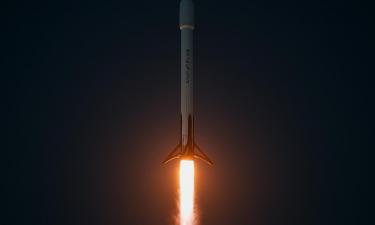Prigozhin's coup shows the true face of Russian allies
PMC Wagner's attempt to conduct a military coup in Russia on June 24 showed the true face of Putin's allies in other states. Turkey turned out to be more loyal than many of Russia's partners in the Collective Security Treaty Organisation (CSTO).
Four leaders call Putin on June 24
After Putin was informed about the rebellion, the Russian leader had telephone conversations with presidents of Belarus, Kazakhstan, Uzbekistan and Turkey. It is only the leaders of these four countries that phoned Putin during the rebellion, a message posted on the website of the Kremlin said.
The Kremlin did not indicate who initiated the conversations, but one is led to believe that Putin received those calls rather than made them himself. Uzbekistan is not a Russian ally either in the CSTO and the EAEU. Unlike Turkey, Uzbekistan is not very much committed to sharing a common agenda with the Russian Federation.
At the same time, the leader of Uzbekistan, Turkey, Belarus and Kazakhstan have one thing in common. They all faced destabilising crises in their countries, and they all know that the support of the allies is important during such critical moments.
Putin personally helped the leaders of the four countries to stay in power. In January 2022, Putin sent Russian peacemakers to Kazakhstan. He sent Russian military specialists to Belarus in August 2020. Putin also provided economic assistance to Belarus President Lukashenko after the West refused to recognise the results of the presidential election in the republic. Putin supported Uzbek President Merziyoyev in measures to stabilise the situation on the very first day of the unrest in Karakalpakstan.
Moscow had warned Recep Erdogan of the 2016 coup and extended the grain deal ahead of the 2023 election, which contributed to Erdogan's reelection.
Tokayev betrayed Putin
Belarus President Lukashenko offered his help to Putin and realised it by conducting negotiations with PMC Wagner founder Prigozhin. Yet, Kazakhstan President Tokayev limited himself to saying that everything related to Prigozhin's military rebellion was an internal affair of Russia.
Tokayev thus demonstrated either ingratitude or fear of reaction of the West. Tokayev did not reach the rank of a decent person in the first case and simply betrayed Putin in the second one. In addition, the President of Kazakhstan is short-sighted. No matter how much oil Kazakhstan sends to Germany, Kazakhstan will always remain an alien Asian land for Germany. Member countries of the EAEU and the CSTO still remain one single system mentally, culturally and economically. It is beneficial and advantageous for all former Soviet countries to support Russia.
It remains unknown what Uzbekistan President Merziyoyev said to Putin, but the very fact of his call is a "big plus to his karma”, since he is not a direct ally of the Russian Federation.
Erdogan showed courage
Recep Erdogan, the President of Turkey, a NATO member, called Putin and offered his help. Erdogan had the courage to tell the world that Ankara was "ready to contribute to the settlement of the situation in Russia." Of course, he knew that Washington and Brussels would be outraged.
This suggests that the President of Turkey is a sovereign president, and a friend of Putin's.
On June 24, Venezuelan President Nicolas Maduro and Nicaraguan President Daniel Ortega also supported Putin unconditionally.
In fact, these are all the allies (Kazakhstan exclusive) that showed their support to Russia in times of the military mutiny. Neither CSTO members Emomali Rahmon and Sadyr Japarov, nor Chinese President Xi Jinping showed their solidarity with Putin on June 24.
On June 25, when everything became clear, the DPRK announced through its ambassador in Pyongyang that "Pyongyang was on the side of Moscow in the conflict between the Russian authorities and PMC Wagner. Beijing spoke in a neutral tone of non-interference in internal affairs of the Russian Federation.
Armenia's Pashinyan, a stool pigeon
We left out Armenian Prime Minister Nikol Pashinyan, who called Putin on June 24 in the evening, but there is no record of his call on the Kremlin website. Pashinyan may have made his call while going on a fishing expedition for the West.
"Nikol Pashinyan stressed that although the events in Russia were part of Russia's internal affairs, he wanted to receive information about the situation in a friendly country," the government of Armenia said in a statement.
As for the position of the West, they feared that Putin could lose control of the nuclear button.
US intelligence agencies said that they allegedly knew about Prigozhin's impending rebellion, but such statements sound like lies not to tarnish the badge. The hand of the West was nowhere near the "march of justice." If the West had been in control of Prigozhin's actions, Western rhetoric would have been different.
Subscribe to Pravda.Ru Telegram channel, Facebook, RSS!





